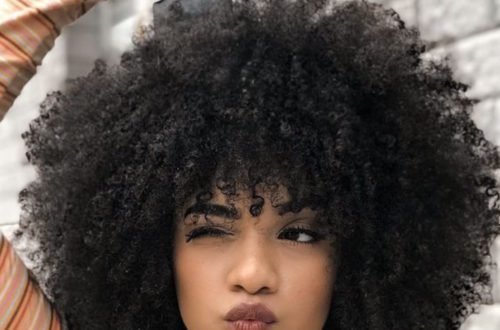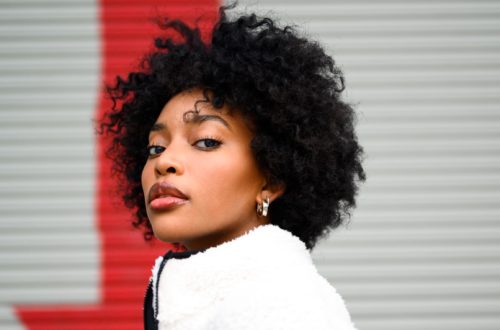
What’s the Deal with Miconazole for Hair Growth?
I must say I was slightly intrigued when I heard that people were using miconazole for hair growth. Not intrigued enough to try it, but definitely intrigued enough to see if there was any clinical data supporting its use. As pharmacist, I am aware of many instances where new uses for old drugs have been created, so I began my quest for information to support its use.
Topical miconazole is used to treat fungal infections including vaginal yeast infections, jock itch, and athletes’ foot.
Extensive research and clinical studies have shown that miconazole is effective at treating various types of fungal infections. Research has also shown that fungal infections of the skin and scalp can cause scarring of the tissue and prevent hair from growing in the infected area. When treated, under the direction of a healthcare professional, the damaged skin will heal, hair loss will be prevented, and hair will resume growing in that area. While miconazole does not promote hair growth itself, clearing of an infected scalp will result in return of hair growth because the miconazole was treating an underlying infection. Please be mindful that self-diagnosis and treatment of skin or scalp conditions are not recommended. If you believe you are suffering from a scalp or skin infection, please seek the advice and care of a licensed professional.
After much research, I was disappointed to find out that there were no studies to date to support its use and no data to suggest that it should even be considered for the treatment of hair loss. So why were so many people talking about it?
YouTube and articles in popular magazines don’t provide any substantial evidence.
Before we go head first into what YouTube and Google said, let’s first consider the source and what substantial evidence there is to support what they say. In my research, I watched several videos and read several articles in popular magazines that gave ambiguous support and a convoluted recipe, if you are so inclined to try the miconazole mixture, but no concrete evidence or even references to fact based clinical articles that would suggest that the use of an antifungal preparation would be beneficial to prevent hair loss.
Remember, this is a drug; and using drugs in a manner they weren’t intended to be used is always a risk. I know you may have seen videos where people were singing praises of miconazole unfortunately, you cannot take someone else’s perceived measure of success, apply it to your own life, and expect to get their same results. There are too many variables and not enough facts.
So, let’s get into the facts:
Healthy hair care practices contribute to hair growth.
The practice of putting miconazole on the scalp may not be sound however, the increased frequency of cleansing of the scalp and conditioning of the strands is. A clean scalp creates an environment that allows your strands to flourish. Healthy lifestyle practices coupled with healthy hair care routines will support an environment that is conducive to healthy strands, increased growth, and retention.
Applying heavy oils and butters to the scalp does not promote hair growth.
Miconazole itself is a rather thick cream, because the miconazole was so irritating to the scalp, many of the articles and videos suggested that it be mixed with other agents to prevent irritation. Evidence shows that applying heavy oils and butters to the scalp does little to promote hair growth, but instead clogs the scalp and creates an environment where bacteria and fungus can grow.
When combining multiple ingredients, it is hard to determine how much of the active ingredient (in this case miconazole) is actually still present in the mixture. Nor can any perceived success be contributed to any one agent.
The average rate of hair growth is about a half of an inch to one inch a month.
Hair growth may seem like a slow or stagnant process, but those inches add up to create length. It is important to remember that there are many factors that contribute to how fast and long our hair will grow. Heredity and ethnicity play a large role in the growth characteristics of our hair, however external factors such as harsh styling or treatments, illness, medications, nutritional deficits, and aging will also affect how the hair grows as well. You should always consider what external factors could be contributing to your hair loss or lack of growth. Where medication is concerned you should always speak to a healthcare professional. If you discover that your hair care practices are contributing to your issues consider modifying them to promote healthy hair.
Hair growth and it’s challenges can be a touchy subject.
As a woman, I know how touchy of a subject hair loss and its prevention can be. While we know that many factors can contribute to it, we sometimes struggle with ways to prevent it or satisfactory methods to restore hair that has been lost. As a pharmacist, I would caution against using medications outside of how that were originally intended. While miconazole is generally safe when used as intended, failure to follow proven treatment guidelines could run the risk of serious side effects including, severe headaches, serious skin irritation, scalp damage, and hair loss. There are safer and more practical methods than the use of miconazole cream for hair growth. Consider incorporating them into your hair care routine and learn to nurture and appreciate your hair as it grows.
References
- The Science of Black Hair: A Comprehensive Guide to Textured Hair Care (Standard Edition: Black & White)
- Wash Your Damn Hair: Simple Haircare and Styling to Help You reach Your Hair Goals
- https://www.sciencedirect.com/science/article/pii/0738081X88900685?via%3Dihub
- https://www.sciencedirect.com/sdfe/pdf/download/eid/1-s2.0-S0733863512000939/first-page-pdf
- https://www.ncbi.nlm.nih.gov/pmc/articles/PMC5324804/
- https://www.aafp.org/afp/2009/0815/p356.html
- https://www.aafp.org/afp/2017/0915/p371.html




